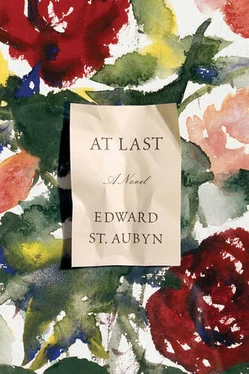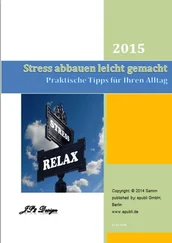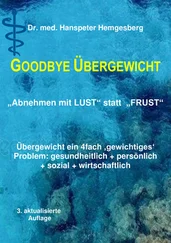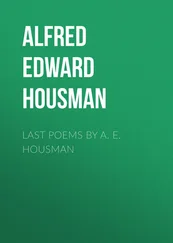‘Where do thoughts come from?’ he muttered, pacing up and down pensively. ‘Before you decide to move your hand where does the decision live?’
‘Honestly, Bobby,’ said Thomas, letting out a short giggle. ‘I expect Brains would know.’
‘Well, Mr Tracy,’ stammered Robert, bobbing up and down on imaginary strings, ‘when you move your hand, your…your brain tells you to move your hand, but what tells your brain to tell your hand?’
‘That’s a real puzzle, Brains,’ said Robert, switching to Mr Tracy’s basso profundo.
‘Weh-well, Mr Tracy,’ he returned to the stammering scientist, ‘I’ve invented a machine that may be able to s-solve that puzzle. It’s called the Thinkatron.’
‘Switch it on, switch it on!’ shouted Thomas, swishing his raggie in the air.
Robert made a loud humming sound that gradually grew more threatening.
‘Oh, no, it’s going to blow up!’ warned Thomas. ‘The Thinkatron is going to blow up!’
Robert flung himself on the floor with the sound of a huge explosion.
‘Gee, Mr Tracy, I guess I must have o-overloaded the primary circuits.’
‘Don’t worry, Brains,’ said Thomas magnanimously, ‘I’m sure you’ll work it out. But seriously,’ he added to Mary, ‘what is the “consciousness debate” that Dada gets so angry about?’
‘Oh, God,’ said Mary, desperate for someone close to her who didn’t want to talk about consciousness. She thought she could put Thomas off by making the subject sound impenetrably learned. ‘It’s really the philosophical and scientific debate about whether the brain and the mind are identical.’
‘Well, of course not,’ said Thomas taking his thumb out of his mouth and rounding his eyes, ‘I mean, the brain is part of the body and the mind is the outer soul.’
‘Quite,’ said Mary, amazed.
‘What I don’t understand,’ said Thomas, ‘is why things exist.’
‘What do you mean? Why there’s something rather than nothing?’
‘Yes.’
‘I have no idea, but it’s probably worth staying surprised by that.’
‘I am surprised by it, Mama. I’m really surprised.’
When she told Erasmus what Thomas had said about the mind being the ‘outer soul’, he didn’t seem as impressed as she had been.
‘It’s rather an old-fashioned view,’ he commented, ‘although the more modern point of view, that the soul is the inner mind, can’t be said to have got us anywhere by simply inverting the relationship between two opaque signifiers.’
‘Right,’ said Mary. ‘Still, don’t you think it’s rather extraordinary for a six-year-old to be so clear about that famously tricky subject?’
‘Children often say things that seem extraordinary to us precisely because the big questions are not yet “famously tricky” for them. Oliver is obsessed with death at the moment and he’s also only six. He can’t bear it, it hasn’t become part of How it Is; it’s still a scandal, a catastrophic design flaw; it ruins everything. We’ve got used to the fact of death — although the experience is irreducibly strange. He hasn’t found the trick of putting a hood on the executioner, of hiding the experience with the fact. He still sees it as pure experience. I found him crying over a dead fly lying on the windowsill. He asked me why things have to die and all I could offer him was tautology: because nothing lasts for ever.’
Erasmus’s need to take a general and theoretical view of every situation sometimes infuriated Mary. All she had wanted was a little compliment for Thomas. Even when she finally told him that she felt there was no point in carrying on with their affair, he accepted her position with insulting equanimity, and then went on to admit that he had ‘recently been toying with the Panpsychist approach’, as if this unveiling of the wild side of his intellect might tempt her to change her mind.
Mary had decided not to take the children to Eleanor’s funeral, but to leave them with her mother. Thomas had no memory of Eleanor and Robert was so steeped in his father’s sense of betrayal that the occasion would be more likely to revive faded hostility than to relieve a natural sense of sadness and loss. They had all been together for the last time about two years before in Kew Gardens, during the bluebell season, soon after Eleanor had come back from Saint-Nazaire to live in England. On their way to the Woodland Walk, Mary pushed Eleanor’s wheelchair through the twisting Rhododendron Dell, hemmed in by walls of outrageous colour. Patrick hung back, gulping down the odd miniature of Johnnie Walker Black Label in moments of feigned fascination with a sprawling pink or orange blossom, while Robert and Thomas explored the gigantic bushes ranged against the slopes on either side. When a golden pheasant emerged onto the path, its saffron-yellow and blood-red feathers shining like enamel, Mary stopped the wheelchair, astonished. The pheasant crossed the hot cinder with the bobbing majesty of an avian gait, the price of a strained talent, like the high head of a swimming dog. Eleanor, crumpled in her seat, wearing old baby-blue flannel trousers and a maroon cardigan with big flat buttons and holes at the elbow, stared at the bird with the alarmed distaste that had taken up residence in her frozen features. Patrick, determined not to talk to his mother, hurried past muttering that he’d ‘better keep an eye on the boys’.
Eleanor gestured frantically to Mary to come closer and then produced one of her rare whole sentences.
‘I can never forget that he’s David’s son.’
‘I don’t think it’s his father who haunts him these days,’ said Mary, surprised by her own sharpness.
‘Haunts…’ said Eleanor.
Mary was thrusting the wheelchair through the dappled potholes of the Woodland Walk by the time Eleanor was able to speak again.
‘Are…you…all…right?’
She asked the same question again and again, with mounting agitation, ignoring the haze of bluebells, mingled with the yellow stalks of wild garlic, under the shifting and swelling shade of the oaks. She was trying to save Mary from Patrick, not out of any insight into her circumstances, but in order to save herself, by some retroactive magic, from David. Mary’s attempts to give an affirmative answer tormented Eleanor, since the only answer she could accept was: ‘No, I’m not all right! I’m living in hell with a tyrannical madman, just as you did, my poor darling. On the other hand, I sincerely believe that the universe will save us, thanks to the awesome shamanic powers of the wounded healer that you truly are.’
For some reason Mary couldn’t quite bring herself to say this, and yet there was still a troubling sisterhood between the two women. Mary recognized certain features of Eleanor’s upbringing all too easily: the intense shyness, the all-important nanny, the diffident sense of self, the masochistic attraction to difficult men. Eleanor was the cautionary tale of these forces, a warning against the worthlessness of self-sacrifice when there was almost no self to sacrifice, of dealing with being lost by getting more lost. Above all, she was a baby, not a ‘big baby’ like so many adults, but a small baby perfectly preserved in the pickling jar of money, alcohol and fantasy.
Since that colourful day in Kew, neither of the boys had been taken to see their grandmother in her nursing home. Patrick stopped visiting her as well, after her excruciating flirtation with assisted suicide two years before. Only Mary persevered, sometimes with the scant dutiful reminder that Eleanor was, after all, her mother-in-law; sometimes with the more obscure conviction that Eleanor was out of balance with her family and that the work of redressing that balance must start straight away, whether Eleanor was able to participate or not. It was certainly strange, as the months wore on, to be talking into space, hoping that she was doing some good, while Eleanor stared ever more rigidly and blankly at the ceiling. And in the absence of any dialogue, she often ran aground on her contempt for Eleanor’s failure to protect her child.
Читать дальше












